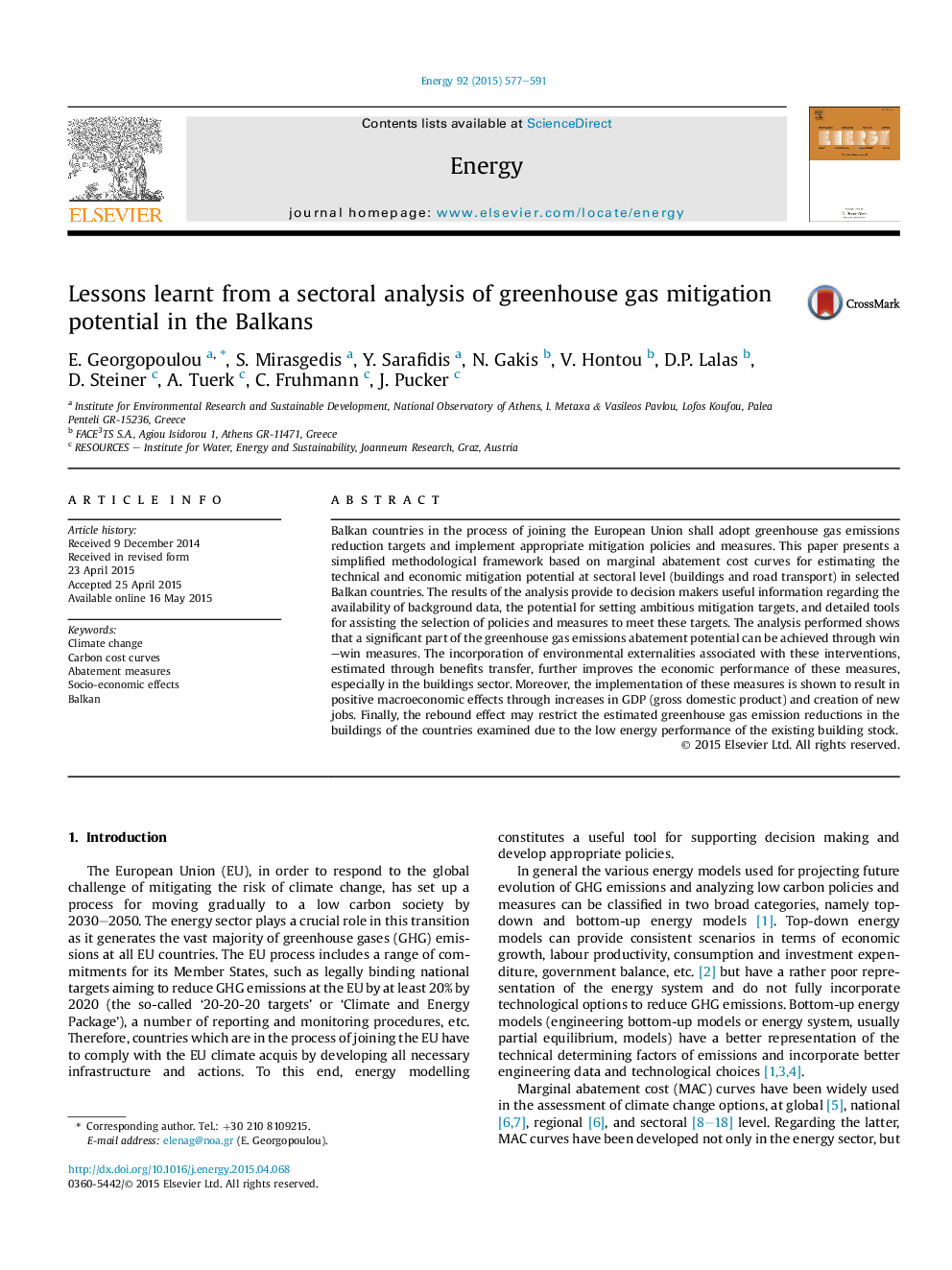| Article ID | Journal | Published Year | Pages | File Type |
|---|---|---|---|---|
| 1731700 | Energy | 2015 | 15 Pages |
•Analysis of the technical and economic GHG mitigation potential in western Balkans.•Marginal abatement cost curves highlight several win–win interventions.•Incorporation of environmental benefits improves the performance of measures.•Mitigation measures result in significant positive macroeconomic effects.•The investment costs and the rebound effect may influence measures' effectiveness.
Balkan countries in the process of joining the European Union shall adopt greenhouse gas emissions reduction targets and implement appropriate mitigation policies and measures. This paper presents a simplified methodological framework based on marginal abatement cost curves for estimating the technical and economic mitigation potential at sectoral level (buildings and road transport) in selected Balkan countries. The results of the analysis provide to decision makers useful information regarding the availability of background data, the potential for setting ambitious mitigation targets, and detailed tools for assisting the selection of policies and measures to meet these targets. The analysis performed shows that a significant part of the greenhouse gas emissions abatement potential can be achieved through win–win measures. The incorporation of environmental externalities associated with these interventions, estimated through benefits transfer, further improves the economic performance of these measures, especially in the buildings sector. Moreover, the implementation of these measures is shown to result in positive macroeconomic effects through increases in GDP (gross domestic product) and creation of new jobs. Finally, the rebound effect may restrict the estimated greenhouse gas emission reductions in the buildings of the countries examined due to the low energy performance of the existing building stock.
